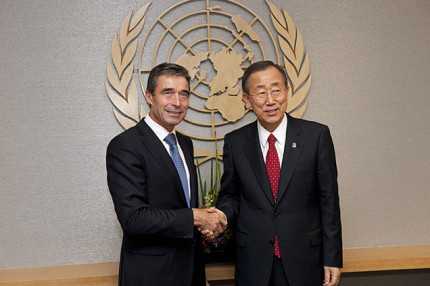NATO and the United Nations
Szöveg: hungariandefence.com / nato.int | 2012. szeptember 30. 6:08Working relations between the NATO and the United Nations (UN) were limited during the Cold War. This changed in 1992, against the background of growing conflict in the Western Balkans, where their respective roles in crisis management led to an intensification of practical cooperation between the two organizations in the field. The experience gained in the Balkans paved the way for close cooperation on the ground in Afghanistan a decade later.

UN Security Council resolutions have provided the mandate for NATO’s operations in the Western Balkans and in Afghanistan, and the framework for NATO’s training mission in Iraq. More recently, NATO’s operation to protect civilians and civilian-populated areas under threat of attack in Libya in 2011 was carried out in support of UN Security Council Resolution 1973.
Over the years, NATO-UN cooperation has been extended beyond operations to include consultations on issues such as crisis assessment and management, civil-military cooperation, training and education, logistics, combating human trafficking, mine action, civilian capabilities, women and peace and security, arms control and non-proliferation, and the fight against terrorism.
NATO and the UN agreed in 2008 to strengthen cooperation between their secretariats in order to better be able to address the complexity of today’s security challenges. This has led to regular exchanges and dialogue between staff at senior and working levels on political and operational issues, as well as the appointment of a NATO Civilian Liaison Officer to the UN Headquarters in New York.